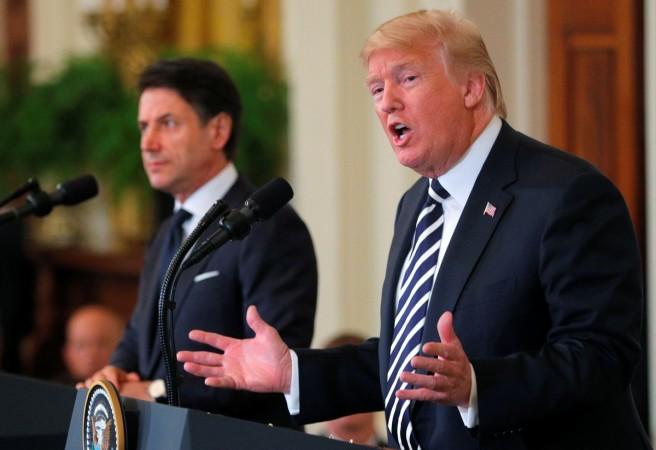
US President Donald Trump on Monday offered to meet Iranian President Hassan Rouhani without any preconditions.
"If they want to meet, we'll meet," BBC quoted Trump as saying at a news conference at the White House with Italian Prime Minister Giuseppe Conte. "I would meet with anybody. I believe in meetings," Trump said, adding that he would set "no preconditions" for a meeting with the Iranians. "If they want to meet, I'll meet."
Ever since Trump pulled out of the Iran nuclear deal in May, the relations between the two countries have deteriorated, with Washington preparing to re-impose sanctions on Tehran within days. However, the other signers of the pact - Russia, China, the UK, France and Germany - are trying to salvage the nuclear deal, the future of which depends in large measure on guaranteeing the sale of Iranian crude.
The latest move by the US President comes after he and the Iranian President exchanged hostile warnings earlier this month amid rising tensions.
In an earlier tweet, Trump said: "Never, ever threaten the US again or you will suffer the consequences the likes of which few throughout history have ever suffered before." The tweet was in response to Rouhani's warning that if Washington launched any conflict with Iran it would find itself in "the mother of all wars".
Trump's Iran strategy, much like his strategy with North Korea, involves clamping down on the economy to force the nation to the table. With North Korea too, heavy sanctions have left the economy so severely damaged that Kim has agreed to denuclearise.
In Iran, the US President is taking a two-pronged approach. While reintroducing sanctions, Trump is focussing on economic shutdown but he is also preparing for military options, with the US considering building an 'Arab NATO' in the Middle East, forcing its Arabian allies to help check the Iranian influence in the Gulf.








